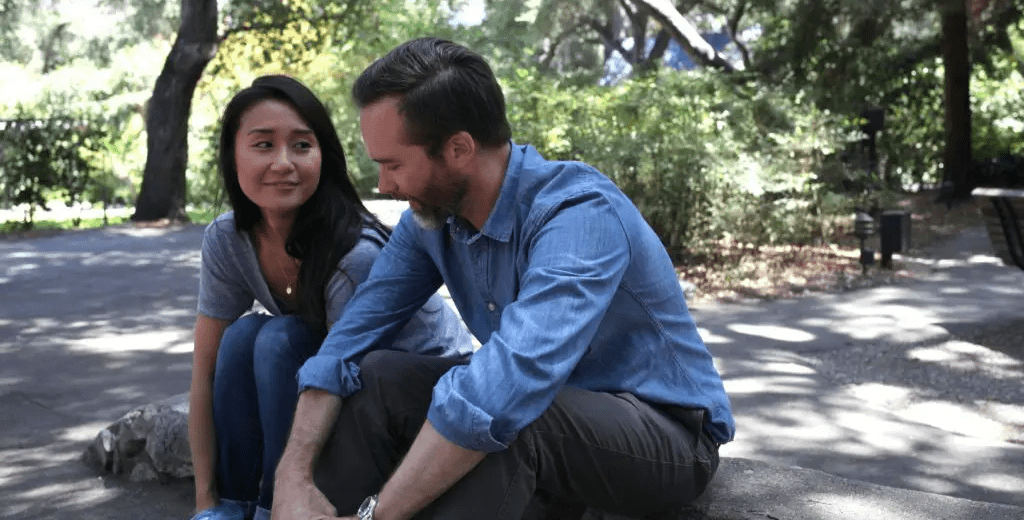What to Expect in your First Infidelity Counseling Session
This article is based on scientific evidence and clinical experience, written by a licensed professional and fact-checked by experts.

Posted: December 8, 2021
Estimated reading time: 4 minutes
In This article
Maybe you just discovered your spouse had an affair or maybe you have known for sometime time. It is also possible you are the one who was unfaithful and have just decided to disclose your infidelity. You simply could not hold it in any longer. Possibly you are someone who has been struggling with a porn or sexual addiction for years and does not know what to do with this or how to overcome and rebuild trust in your marriage. The stress, the loss of trust, the fear of abandonment, the fear of the unknown, the inability to know everything is going to be okay, the feelings of betrayal are just a few of the many emotions people feel walking into their first infidelity session. We at MCO understand being in a situation like this for both people is incredibly scary and overwhelming. We also, know how to help. We know how to walk alongside your individual pains, help facilitate the restoration of trust, rebuild emotional intimacy, and sexual intimacy.
You are taking a brave step in considering counseling. It is natural you have some questions about what to expect in your first session, especially if this is your first time coming to counseling. Even if this is not your first time, this field is as wide as it is deep, and there are nearly as many forms of counseling as there are counselors. This article is written to ease some of your anxieties as you wait and prepare for your first session at MCO for help with the infidelity in your marriage.
What kind of therapy to expect.
When you first enter your initial session, you will meet your therapist and he or she will tell you a bit about themselves, and the way they are as a therapist. There are a few things that you should know about therapists at MCO. First, you are working with incredibly hard-working, passionate, and gifted therapists who are undergoing, or have already undergone, rigorous training to be their very best. The way that this translates to you is in a warm, inviting presence, genuine interest in you, your story, and your healing, and an understanding of how to get you to your goal. Next, you should know that all clinicians at MCO identify ourselves as faith-integrated, attachment-based, emotionally-focused, and experiential therapists.
- What that means is that God, faith, Scripture, and a Christian worldview will likely be apart of your sessions in ways that are encouraging, life-giving, and inviting, never judgmental, condemning, or shaming. Please feel free to ask your therapist to pray with you if that is something you would like, and know that regardless, he or she is certainly praying for you as they come alongside you in your journey.
- It also means that we understand how our families growing up shaped the way we view the world, ourselves, and others, and that when attachment figures (parents/caregivers) are not accessible, responsive, and engaged we can become anxious, avoidant, and sometimes even chaotic in our relationships. The good news though, is that security and safety can be earned through relationship with healthy, strong, wise others, such as your therapist, spouse, mentors, friends, etc.
- Emotionally-focused means that we tune into the right brain feelings and body sensations which are always trying to communicate with us, but which many of us have not been taught to listen to. There is wisdom in your body. I often tell my clients that I could teach you how to use “I statements” and rules for fighting fair like other therapists, but what research has shown is that in the midst of an argument, your brain goes into it’s “fight or flight” mode of operating and sees your spouse as a threat, and all of that information is not easy to use as you respond to them from pure emotion- fear, anger, sadness, disgust, etc. So we might as well use what we know about the brain and tap into the power of emotion as a resource to draw you and your partner out of this escalated place and into connection.
- Finally, your therapist is “experiential,” meaning that their focus is not going to be on homework or books you can read to resource yourself, but on the “here and now” of the session, because who you are in the session is the same person you are in the world, so attending to every moment of the session is more effective in helping you to make changes than any task you might do. What we do and how you are in session and will eventually become who you are and what you do outside of it.
Discussing what questions your therapist will ask you and why.
Next, your counselor has three guiding questions which will echo the intake document you completed when you scheduled your session. Those questions are: 1) What has brought you into counseling at this time and whose idea was it? 2) How has your infidelity/relationship evolved over time and when, how and with whom did the infidelity occur? 3) If you got everything you wanted out of counseling, what would you want to be different on the other side of it? (i.e. what are your goals?) We will explore these questions in greater detail below.
- What has brought you into counseling at this time and whose idea was it? As I often say, in order to know where we are going, we need to get honest and acknowledge where we are. Depending on if you are seeking therapy preventatively or reactively, this may or may not be a difficult, sobering conversation. If you are coming to counseling, at the very least, it is likely an uncomfortable one to have. It is helpful here to be loving, yet honest about your personal perspective of the relationship. What is your personal experience of the relationship and how is the infidelity impacting it? Where do you find yourself stuck? What draws you close and pushes you away from your spouse right now?
- How has your infidelity/relationship evolved over time and when, how and with whom did the infidelity occur? We will not go into all of the details of the infidelity in a first session. There simply is not time. Instead, your therapist will ask these basic questions to get a sense as to the type of infidelity to aid in deciding the course of action.
- If you got everything you wanted out of counseling, what would you want to be different on the other side of it? (i.e. what are your goals?) Now that we know what the problem is and an idea of how it came to be, we want to discuss what you would like to be different and how life would be on the other side of counseling. After the revelation of infidelity, it may seem nearly impossible to think anything good could happen in the future, but it can. Marriages can and do heal from infidelity. In fact, so many of our couples report having a stronger marriage after the recovery process than they had before the betrayal. This is not to say they are thankful for the infidelity, instead, they are celebrating what they chose to do together as a couple to overcome. So take some time to allow yourself to imagine what could be.
How you and your spouse may feel and how to handle this.
Unfaithful Spouse:
While your counselor will do everything possible to help you feel welcomed and not judged, typically unfaithful spouses experience feelings of shame, guilt, and sometimes even anger. Talking about your infidelity in this first session will lead to you feeling more of your emotions. Your shame will show up as seeing yourself or your marriage as a failure, feeling hopelessness, or wanting to get done with session as quickly as possible. Guilt appears as a tremendous feeling of responsibility and pain around what you have done. Finally, flashes of anger may occur, directed at yourself, your spouse, or even your counselor. You may notice yourself feeling hostile and wanting others to stop bringing up your infidelity. The solution to handling these emotions is first to have an awareness of them. Knowing you may have these feelings and how they appear will help you identify them if you do feel them. The second step is to voice these emotions to your counselor, taking ownership of them. You might say something as simple as, “I am feeling pressure in my chest and my voice is getting louder. I am really feeling my anger right now.”
Injured Spouse:
Your nervous system is absorbing an enormous injury. Without getting too technical here, the parts of your brain involved in feeling emotion are highly activated and the parts of your brain involved in higher reasoning are trying to manage this flood of emotional arousal. You can expect to feel surging anger one minute, sadness the next, and fear the next. This is actually normal and does not mean you are going crazy. It will also not last, although you may feel it will never end. Your therapist will help you with this intense emotion in two ways. The first is providing clear direction on how the infidelity will be addressed. The second, is by helping you attune to your body and emotions, helping you to feel into and regulate your experience. This second way of helping is extremely effective in bringing relief, but may seem a little strange at first. Often times, we believe if we understand enough or think through the situation enough, we will feel better. However, this is not true. Though it may provide temporary relief, thinking or cognition is actually quite limited in its effectiveness, if you do not engage in attuning to your body and emotions.
Plan of Action
You will then walk through a process following this session involving either preparing to disclose the infidelity in detail and understanding the why behind the infidelity itself, or dealing with resistance/ambivalence about recovery. Some couples present with both individual ready and committed to work on the marriage. If this is you, that is great! However, many times couples present with one or both partners being unsure what they want for the future. If this is you, be encouraged, this does not mean the marriage is hopelessly lost.
If both of you are ready to reconcile, your counselor will walk you through individual and couples counseling following. Your individual work will focus on your own individual healing post disclosure and your couples sessions will help you to rebuild and restore trust, process your grief together as a couple, and will help you re-establish emotional intimacy and sexual intimacy.
If one or both of you are uncertain, your counselor will arrange to meet with your individually to process where you are at and helping you to choose a direction.
You are taking an incredibly brave step in believing the Lord will heal your marriage. My hope is that this article has helped to provide some information and alleviate any anxiety about starting this process. You are in great hands with an MCO therapist and held in the arms of the Father as you move forward toward health and wholeness in your marriage.
Back to topThis article is based on scientific evidence and clinical experience, written by a licensed professional and fact-checked by experts.
About the Author

Melissa Abello
Melissa Abello MA, LPC, has a Masters in Counseling. She is a Licensed Professional Counselor (LPC), holding her license in Missouri.
Learn More About MelissaIn This article
Share this article
View more articles

How to Revitalize Connection in a “Roommate” Marriage: Pt. 2 Physical Connection
By: Danielle Schaefer







